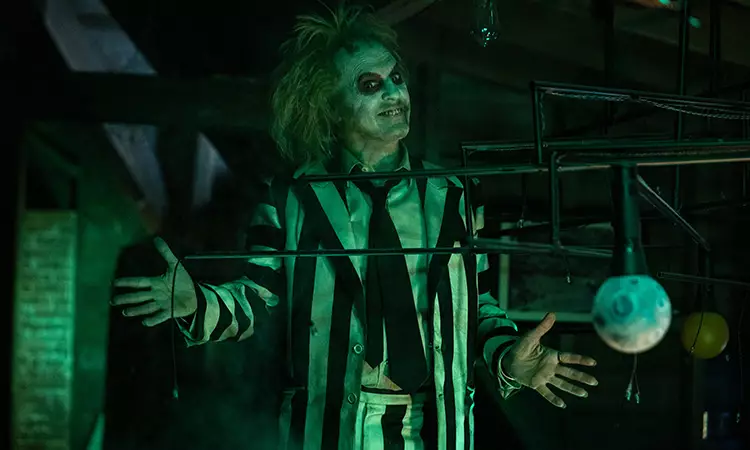Lydia Deetz, a character originally brought to life by Winona Ryder in the 1988 classic “Beetlejuice,” has arguably become a cultural icon for a generation of goth enthusiasts. In Netflix’s latest offering titled “Beetlejuice Beetlejuice,” the creators, Alfred Gough and Miles Millar, revisit this beloved universe, presenting a reinterpretation that showcases Lydia as a multi-faceted character grappling with love, loss, and the supernatural. This sequel not only taps into the same dark humor established in the original film but also diverges into new narrative territories, providing a fresh yet familiar experience.
In this iteration, Lydia is depicted as a widow managing a paranormal television show, struggling with her fraught relationship with her teenage daughter, Astrid, played by Jenna Ortega. The socio-emotional dynamics between a mother and daughter take center stage, set against the backdrop of Lydia’s complicated past. The nuances of this relationship reflect modern familial issues through the lens of gothic aesthetics. The backdrop of Lydia’s return to New England—now tainted by the sorrow of her father’s recent death—adds layers to her character, allowing for a deeper exploration of grief and responsibility.
Tim Burton, known for his unique visual storytelling, infuses the narrative with a blend of macabre humor and whimsical grandiosity. Although the screenplay may seem overstuffed at times—with a multitude of characters and subplots vying for attention—it is this very chaos that serves to define the sequel’s charm. Michael Keaton returns as Betelgeuse, now confronting personal demons of his own while dealing with the wrath of his ex-wife, played by Monica Bellucci. The cleverly updated portrayal of the afterlife’s bureaucracy showcases Burton’s signature humor and creativity, aligning perfectly with the narrative’s eccentricities.
The ensemble cast delivers spirited performances that elevate the film. Catherine O’Hara, as Lydia’s stepmother Delia, brings a mesmerizing blend of arrogance and grotesque charm to her role, fully embracing her character’s theatrical mannerisms. Meanwhile, Ryder’s natural eccentricity pairs well with Ortega’s deadpan humor, crafting a dynamic that feels both authentic and entertaining. Their witty exchanges serve to enhance the comedic elements, showcasing how humor can coexist with darker themes.
At its core, “Beetlejuice Beetlejuice” remains anchored in themes of family and love, reminiscent of what originally attracted audiences to the first film. As stated by co-writer Larry Wilson, these underlying themes help to balance the chaotic humor with emotional relevance. Spectacular musical numbers interspersed with homage to classic horror further enrich the experience, resulting in a surreal blend of silliness and substance that defines the film’s unique voice.
“Beetlejuice Beetlejuice” embodies a fresh evolution of Lydia Deetz’s character while navigating through the complexities of modern relationships and the afterlife. With its kaleidoscopic visuals and an extremely talented cast, the film invites audiences to revel in a world where darkness and humor coexist, making it a worthwhile addition to the cinematic canon of gothic comedy.


Leave a Reply